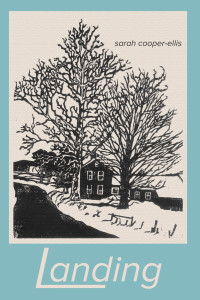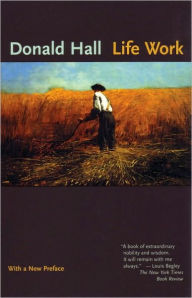
There’s a moment in mid-life when many, if not all of us stop and wonder if it’s time to change course. Maybe something brings home how short the time we have left may be, and we rethink how we ought to use it. This novel begins with such a moment (Full disclosure: I know the author slightly.) Sometimes we look back over our lives to see if we missed a turning somewhere. Sometimes we get drawn into something new almost without realising it.
At 60, Meredith Carter must take a break from her work at a childcare center due to physical injury. She enjoys her job but realises “that there was something else she should be doing.” An independent New Englander, she has only herself to consult about changing course. Her husband died 17 years earlier and her only child is grown and living in New York City.
Life in her rural New Hampshire home is disrupted by her siblings who, across the river in Vermont, are starting a maple syrup business. Smaller than a small town, the village of Middlefield where they grew up holds ghosts and memories: ponds where they used to skate, new developments covering fields that once held forests.
As she spends more and more of her time staying with one of her brothers while working in the store, Meredith feels the pull of the past even as she enjoys flexing new muscles managing sales and inventory. Then she meets Arthur, a woodworker who lives across the road. Fifteen years older than Meredith, there is a calm strength about him that draws her.
The story moves across time as Meredith explores her own willingness to return to her hometown or to share her life again. What I most love about this book are the descriptions. Meredith had once been a forester and so a walk in the woods takes us deeper into the landscape than one might expect, reminding me of Tom Wessel‘s masterful Reading the Forested Landscape. More than mere ornaments, these images embody her own exploration of her native ground.
There are a few places where I wanted more: a scene with a former boyfriend that ends almost before it’s begun, a story thread that didn’t seem to ever get resolved. But I found much to like about this book: the independent woman at its center, the immersion in rural New England life and landscape, the idea of investigating the possibility of a new life, the emotional journey of an older woman that rings so true.
What novel have you read where the landscape is an integral part of the story?
